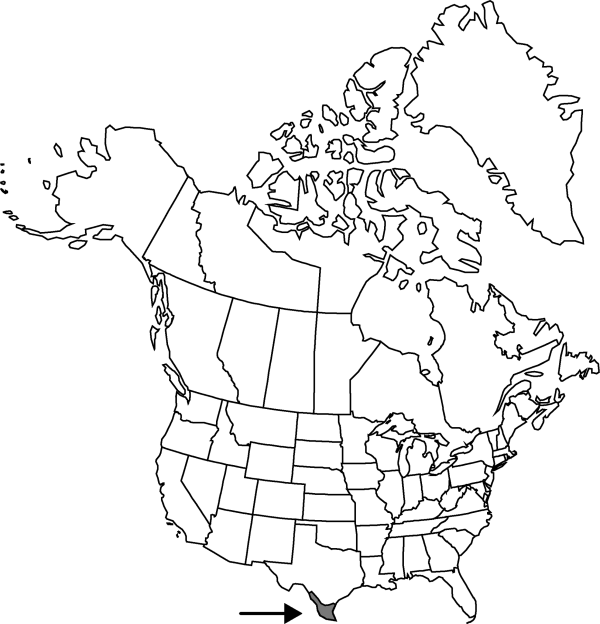Difference between revisions of "Mammillaria sphaerica"
Allg. Gartenzeitung. 21: 94. 1853.
FNA>Volume Importer |
FNA>Volume Importer |
(No difference)
| |
Revision as of 22:23, 16 December 2019
Plants many branched; branches 10–30(–50). Roots thick taproots, large in upper portion. Stems subspheric, 4–5 × 5–8 cm, soft, flaccid; tubercles 12–25 × 5–8 mm; axils slightly short woolly, without bristles; cortex and pith not mucilaginous; latex absent. Spines 13–15 per areole, whitish to yellowish, glabrous; radial spines 12–14 per areole, gray, bristlelike, 6–9 × 0.1 mm, stiff; central spines 1 per areole, porrect, straight, not hooked or curved, similar to radial spines, 3–6 × 0.25 mm; subcentral spines 0. Flowers 4 × 5–7 cm; outermost tepal margins entire (or minutely toothed near base); inner tepals bright yellow, paler near base, 20–30 × 4.5–8.5 mm; stigma lobes cream to pale yellow, 5–6 mm. Fruits greenish white to dull pinkish tan or maroon, ovoid to short cylindric, 10–15(–20) × 7 mm, juicy throughout; floral remnant weakly persistent. Seeds brown, 1.3 × 0.9 mm, pitted; testa soft or leathery, not hard or brittle; anticlinal cell walls straight to slightly curved; interstices equal or narrower than pit diameters; pits bowl-shaped. 2n = 22.
Phenology: Flowering Jul; fruiting May.
Habitat: Tamaulipan thorn scrub on plains and low gravelly hills
Elevation: 0-300 m
Distribution

Tex., Mexico (Nuevo León, Tamaulipas).
Discussion
A proposed taxonomic reduction of Mammillaria sphaerica to varietal rank within the geographically disjunct and morphologically distinct Mexican species, M. longimamma, while plausible, has not yet been convincingly justified.
Selected References
None.